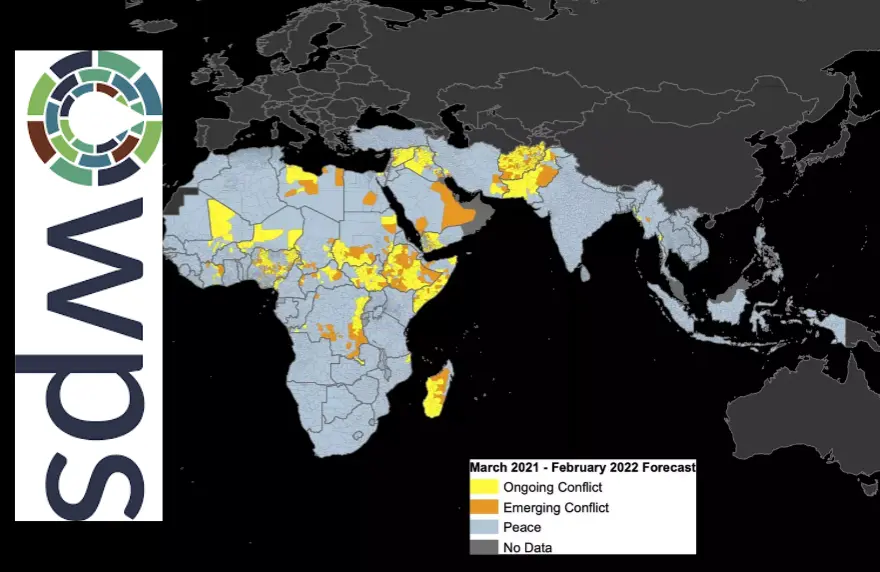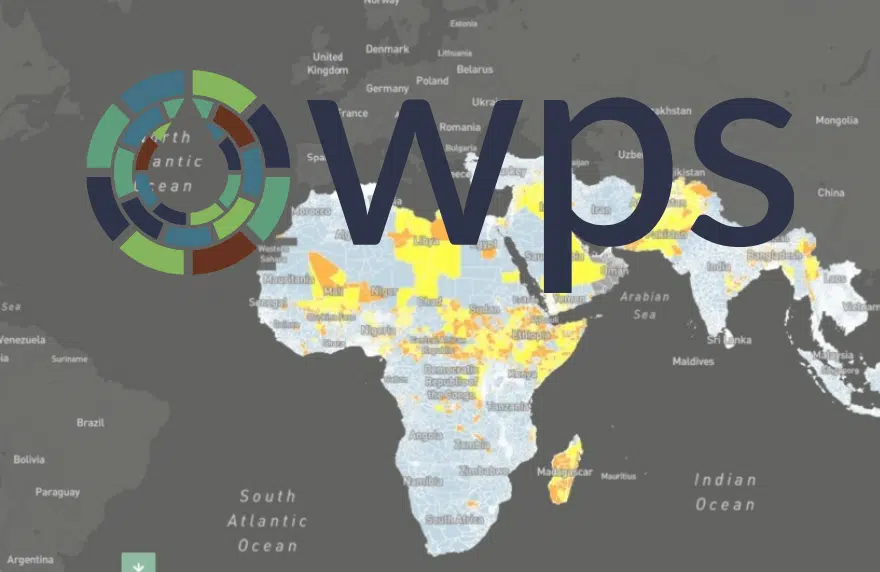Leveraging water data, the Global Early Warning Tool is able to apply a machine learning model to successfully forecast 86% of future conflict over the next year.
It does this on the basis of 15-20 global indicators that serve as model inputs. Conflict is defined in the model as one that produces 10 or more deaths in any given Admin Level 2 (sub-state or sub-provincial) region over a 12-month period, with predictions of ongoing conflicts being more accurate than those of emerging ones.
In western Sahel countries, including Mali, Niger, Burkina Faso, and Nigeria, the machine learning model is forecasting emerging and ongoing conflict across much of the region. Compared with the last quarter, however, there are many places in these countries where the model is now forecasting peace instead of conflict.
In eastern Africa, the model is still forecasting conflict across much of Sudan and South Sudan. In Ethiopia, the number of regions where the model is forecasting conflict is growing, compared with last quarter. In Kenya, by contrast, the number of regions where the model is forecasting peace is growing, compared with last quarter. The same is true for Mozambique; however, the conflict in the northern-most province of Cabo Delgado is intensifying.
In Turkey, Iraq, and Iran, the model is also forecasting more regions with peace than last quarter. The same is true for India, Bangladesh and Southeast Asia. It could be that COVID is reducing the number of conflicts throughout much of the developing world, which is in turn causing the model to predict conflict in fewer regions than before. Conflict over the past 12 months is one of the model inputs.
Find out more about the conflicts, droughts and floods that are likely to develop over the next year in this quarterly update by Water, Peace & Security.




